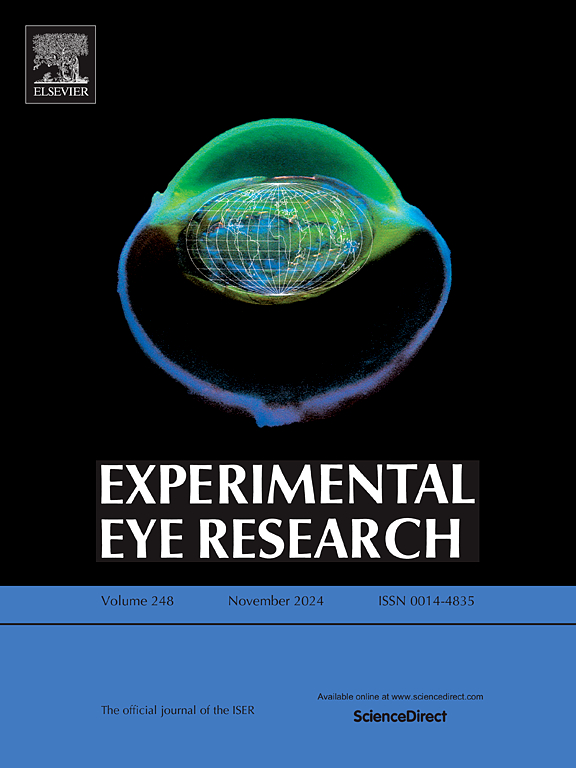Blood integrin- and cytokine-producing T cells are associated with stage and genetic risk score in age-related macular degeneration
IF 3
2区 医学
Q1 OPHTHALMOLOGY
引用次数: 0
Abstract
Age-related macular degeneration (AMD) remains a leading cause of vision loss in the geriatric population. There are age-related changes in peripheral blood leukocyte composition, but their significance for AMD remains unclear. We aimed to determine changes in immune cell populations in the blood of AMD patients. A standardized 31-parameter flow cytometry analysis was conducted on peripheral blood mononuclear cells from 59 patients with early and advanced AMD and 39 controls without AMD, all older than 65 years. Fundus photography and optical coherence tomography were used to classify disease stages and a custom genotype array was used to compute an AMD genetic risk score based on 52 AMD disease risk variants (GRS-52). A generalized linear regression model corrected for age, sex, and smoking status revealed that AMD patients showed decreased frequencies of CD4+ T helper cell population expressing Integrin Alpha E (CD103) (Padj = 0.019). We further noted that early AMD was characterized by increased interleukin-4 (IL-4)-producing CD4+ T helper cells (Padj = 0.013; <0.001), as well as IL-4-producing cytotoxic CD8+ T cells (Padj = 0.016; <0.001). Reclassification of samples based on the GRS-52 revealed that IL-17-producing T cells decreased incrementally across GRS-52 categories. In AMD, alterations in peripheral blood leukocyte populations are associated with genetic risk score and disease stage and include specifically IL-4 and IL-17A cytokine-producing and CD103 integrin-expressing T cell populations.
血液整合素和产生细胞因子的 T 细胞与老年性黄斑变性的分期和遗传风险评分有关。
老年性黄斑变性(AMD)仍然是老年人视力丧失的主要原因。外周血白细胞组成存在与年龄相关的变化,但其对老年性黄斑变性的意义尚不清楚。我们旨在确定 AMD 患者血液中免疫细胞群的变化。我们对 59 名早期和晚期 AMD 患者的外周血单核细胞以及 39 名 65 岁以上无 AMD 的对照者的外周血单核细胞进行了标准化的 31 参数流式细胞术分析。眼底摄影和光学相干断层扫描用于疾病分期,定制基因型阵列用于计算基于 52 个 AMD 疾病风险变异的 AMD 遗传风险评分 (GRS-52)。一个校正了年龄、性别和吸烟状况的广义线性回归模型显示,AMD 患者的 CD4 阳性 T 辅助细胞群表达 Integrin Alpha E (CD103) 的频率降低(Padj = 0.019)。我们还注意到,早期 AMD 的特征是产生白细胞介素-4(IL-4)的 CD4+ T 辅助细胞增多(Padj = 0.013;
本文章由计算机程序翻译,如有差异,请以英文原文为准。
求助全文
约1分钟内获得全文
求助全文
来源期刊

Experimental eye research
医学-眼科学
CiteScore
6.80
自引率
5.90%
发文量
323
审稿时长
66 days
期刊介绍:
The primary goal of Experimental Eye Research is to publish original research papers on all aspects of experimental biology of the eye and ocular tissues that seek to define the mechanisms of normal function and/or disease. Studies of ocular tissues that encompass the disciplines of cell biology, developmental biology, genetics, molecular biology, physiology, biochemistry, biophysics, immunology or microbiology are most welcomed. Manuscripts that are purely clinical or in a surgical area of ophthalmology are not appropriate for submission to Experimental Eye Research and if received will be returned without review.
 求助内容:
求助内容: 应助结果提醒方式:
应助结果提醒方式:


